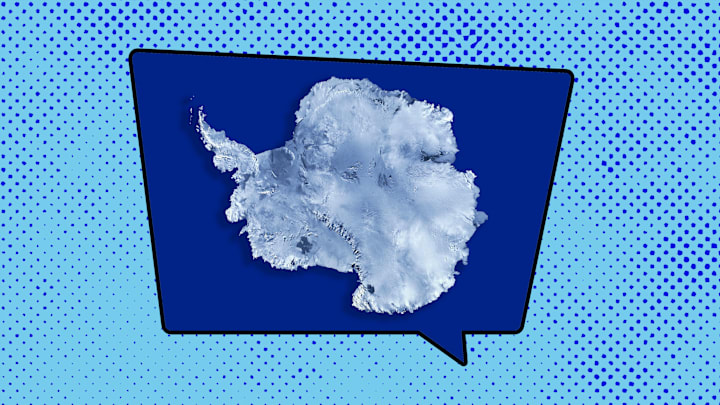Imagine being stranded in the icy wilderness of Antarctica, cut off from the rest of the world, with only a small group of people for company. Such a group might be expected to develop a culture of its own, but would that extend to the development of a new shared accent? It sounds like something out of a science fiction novel, but as IFL Science reports, linguists studied just such a situation and reported on their findings in the 2019 study “Phonetic change in an Antarctic winter,” published in The Journal of the Acoustical Society of America .
Given that adults typically have great difficulty with pronunciation when learning a new language, it stands to reason that after a certain age, our accents would be set. But that turns out not to be the case.
As part of an ongoing project to explain the forces “that shape spoken accent development ultimately leading to language diversification and change,” a group of researchers headed by Jonathan Harrington, professor of phonetics and speech processing at the Ludwig-Maximilian University of Munich, embarked on the study. They recruited 11 participants from the British Antarctic Survey who were part of the small team that overwinters on the continent. Eight of the participants were British speakers of English (five were from south or southeast England, while three were from the north/northwest), but the group also included an American, a person whose first language was German, and a person whose first language was Icelandic.
The linguists recorded the speech patterns of the participants—who were asked to read selected words—at regular intervals and compared them to control recordings taken in the United Kingdom before deployment.
The findings revealed subtle but measurable changes in the speech of the overwintering staff during their time in Antarctica. One change was convergence, where individuals in a close-knit group unconsciously begin to adopt similar speech characteristics. In this case, that meant convergence of /u/ (the “oo” in goose), /ju/ (the “you” in few), /ou/ (the “oh” in goat), and /ɪ:/ (the “ee” in the last syllable in happy).
But another was a very slight change in the pronunciation of the /ou/ sound, as in goat: The over-winterers began to pronounce it more toward the front of their mouths than toward the back. (British pronunciations are already typically fronter than American /ou/.) This finding shows that the new accent isn’t just an average of the starting accents. That said, the presence of two outliers, the German speaker and the American speaker, strongly influenced the results, so the researchers cautioned “against extrapolating general conclusions from this small and indeed skewed sample of speakers.”
“The Antarctic accent is not really perceptible as such—it would take much longer for it to become so—but it is acoustically measurable,” Harrington told IFLScience. “It’s far more embryonic [than conventional English accents] given that it had only a short time to develop and also, of course, because it’s only distributed across a small group of speakers.” Still, the study demonstrates that adults can develop a shared accent in a relatively short time, challenging assumptions that adult accents are relatively fixed.
The linguists also did more than observe: They created a model based on the pre-arrival recordings, which successfully predicted some specific changes they later observed. “The individuals were found to develop the first stages of a common accent in Antarctica whose phonetic characteristics were in some respects predicted by the computational model,” the study notes.
Additional pronunciations have since been added to the computational model, which could be used to analyze how migration and accent exposure alter language sounds, to study past environmental impacts on language, or to predict future changes. According to Harrington, “The most important use will be in predicting the changes to speech sounds that take place when two dialects come into contact with each other or when one speaker migrates to a new dialect area.”
[h/t IFLScience]
Are you a logophile? Do you want to learn unusual words and old-timey slang to make conversation more interesting, or discover fascinating tidbits about the origins of everyday phrases? Then get our new book, The Curious Compendium of Wonderful Words: A Miscellany of Obscure Terms, Bizarre Phrases, & Surprising Etymologies, out now! You can pick up your copy on Amazon, Barnes & Noble, Books-A-Million, or Bookshop.org.
